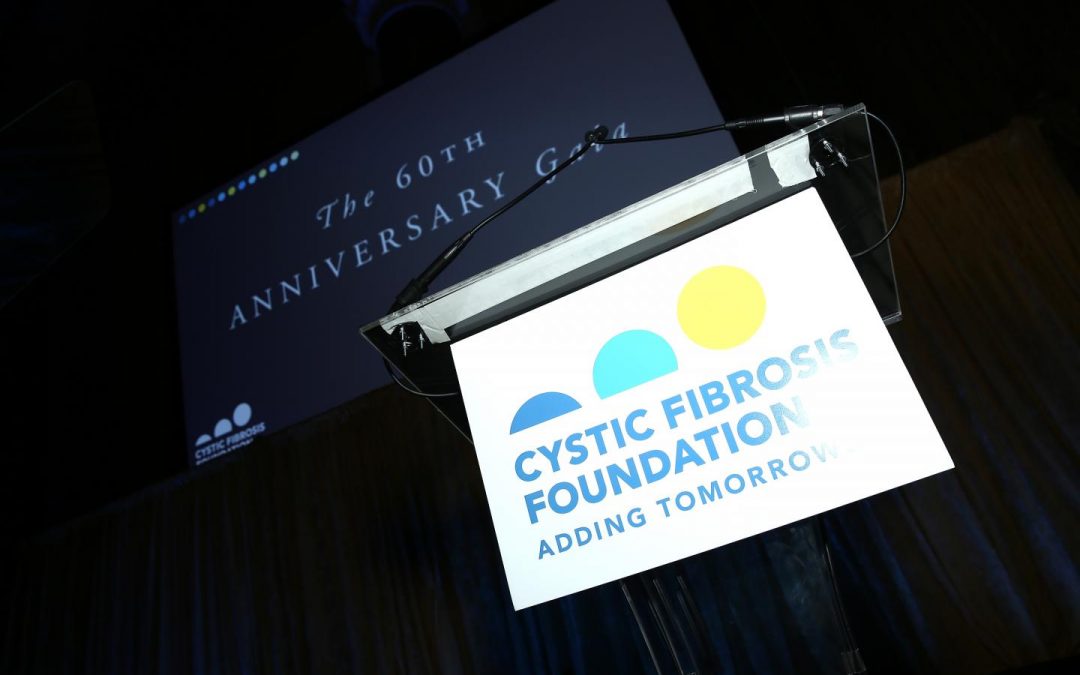A sign from the Cystic Fibrosis Foundation’s 60th Anniversary Gala, in 2015, is pictured. Those with the disorder get chronic infections and new research may shed light on how to prevent them.CINDY ORD/GETTY IMAGES FOR CYSTIC FIBROSIS FOUNDATION
CYSTIC FIBROSIS: BACTERIA CAUSING CHRONIC INFECTIONS MAY HAVE A ‘MEMORY,’ STUDY REVEALS
Despite being an extremely simple organism, bacteria may actually have a functioning memory that allows it to retain and pass along sensory knowledge, according to a new study.
The findings, which could have implications for those suffering from cystic fibrosis—a rare disorder that leads to severe lung damage, among other complications—were unforeseen by the multidisciplinary research team.
“[Bacteria] are single-celled, don’t have neurons and don’t have a central nervous system, so how do they have anything that looks like memory?” study author Gerard Wong, a chemistry and biochemistry professor at the University of California, Los Angeles (UCLA), told Newsweek. “The very existence of memory is a bit surprising.”
In the research, published in the journal PNAS, Wong and his colleagues analyzed the early stages of biofilm development in a bacteria called Pseudomonas aeruginosa. Biofilm is a thin, slimy layer of bacteria that attaches itself to the lungs of patients with cystic fibrosis causing a lethal type of infection. In order for the glue-like layer to form, it must first sense the surface. Upon doing so, it’s then able to adhere to the lungs—but, how?
“Without eyes, ears or the senses that we commonly think of as senses, how do bacteria know that they’re no longer free swimming and they’re in fact on a surface?” Wong said his team sought out to answer. They found the bacteria sense the surface by using appendages they have. They then pass on knowledge of the surface to their descendants via the newly discovered encoded memory.
“A remarkable aspect of [the new finding] is that the ‘knowledge’ that surfaces are likely to be encountered can be passed down generations,” Vernita Gordon, an assistant physics professor at the University of Texas at Austin who has done similar work but was not involved in the current research, told Newsweek via email. “This suggests a new view of how minimizing exposure to surfaces could be important for preventing or slowing biofilm development.”
Once a biofilm infection develops, they’re very difficult to get rid of and are currently treated with fairly strong doses of antibiotics. However, if the film never got there in the first place, the chronic infections could potentially be minimized. Wong’s findings are important because they could help to understand if there’s a way to allow bacteria to forget that they’re on a surface. In the future, he hopes to further explore how to do so.
“We’re kind of giving bacteria amnesia,” Wong said, laughing.
BY ON 4/7/18 AT 8:20 AM
http://www.newsweek.com/cystic-fibrosis-bacteria-chronic-infections-memory-876029

